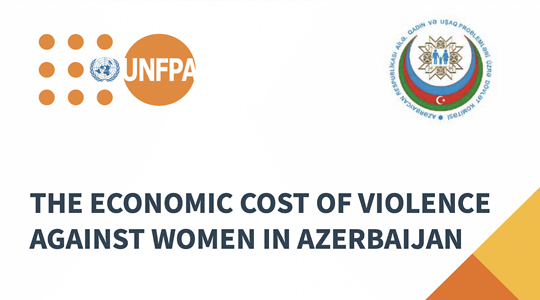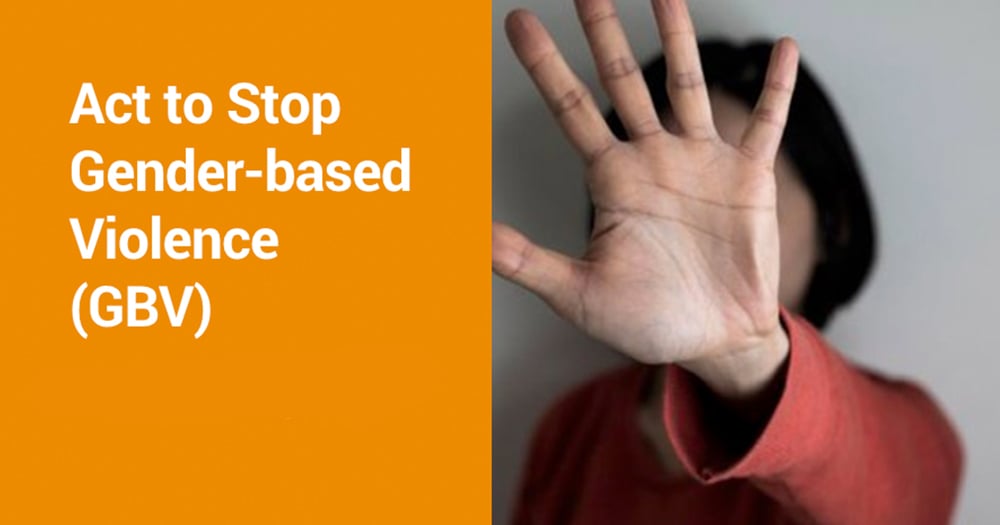This page provides information on protection and support services currently available for the survivors of gender-based violence in Azerbaijan, including a short overview of the legal framework on preventing and addressing domestic violence in the country and the contact information for accessing the services being offered. Click the boxes below to find the information you are looking for.
Information provided on this page is based on the law of the Republic of Azerbaijan “On prevention of domestic violence”.
Family members of the perpetrator
Family members can include spouse, parents, children, grandmother(s), grandfather(s), siblings, stepbrothers, stepsisters, adoptive parents, adoptive children.
Relatives
Close relatives of spouse, other relatives in cases of living with perpetrators.
Former spouse
Former spouse living together or separately after divorce.
Wards and persons under guardianship or trusteeship
Individuals appointed as guardians or custodians, as well as those under guardianship or custody.
Extramarital partners
Partner (woman or man) living in extramarital relationship with the perpetrator, and relative(s) living with them.
Police and prosecution authorities
In cases involving sexual and physical violence that qualifies for a crime, criminal proceedings are instituted. Whenever required, a victim shall be provided with urgent medical and legal assistance, as well as a temporary refuge in a help center, clothes and food, and psychological rehabilitation and psychological correction by the State.
Where violence does not qualify for a crime, a complaint shall be submitted by a victim to a local executive authority in the area of his/her actual residence.
In addition, police can take action under the corresponding provisions of the Code of Administrative Offences.
Local executive authorities in the area of actual residence
A victim is provided with a legal aid (lawyer). Whenever required, a victim shall be provided with a refuge, seasonal clothing, foodstuffs, medical and psychological rehabilitation and correction services.
If actions of a perpetrator of violence constitute a criminal element or administrative offense, an application shall be put into a competent public authority.
Where violence is committed against a child, a suit is brought in a court to either deprive (his/her parents) of or restrict (their) parental rights.
A short-term protection order shall be granted to protect a victim. An application shall be made to the court for the issuance of a long-term protection order to protect a victim.
District (city courts)
Following the failure to comply with short-term protection order requirements or reсurrent violence committed upon the expiry of the protection order, the court shall make, within three days, a decision to grant a long-term (60 to 180 days) protection order to protect the victim.
District (city) departments for judicial execution and probation under the Ministry of Justice
The failure to comply with protection order requirements shall bring the perpetrator to administrative and criminal account.
Public health facilities
Provision of free medical care.
A short-term protection order (granted within 24 hours for up to 60 days)
A perpetrator is prohibited from:
- committing domestic violence once more
- looking for a victim whose whereabouts are unknown to him/her
- acting the way that disturbs a victim
A long-term protection order (granted within three days for the term of validity from 60 up to 180 days)
A perpetrator is prohibited from doing one or several of the following:
- committing domestic violence once more
- looking for a victim whose whereabouts are unknown to him/her
- acting the way that disturbs a victim
In addition to the aforementioned, the order shall include one or several of the following:
- rules for a perpetrator of domestic violence to communicate with his/her minor children
- identification of the rules for the usage of a dwelling place or joint property
- terms of payment by the perpetrator of expenses for the provision of medical care and legal aid for the victim
- explanatory note to clarify the responsibility for the failure to execute a (court) decision to grant a long-term protection order
Hotlines
Law Enforcement
(012) 492 55 40
(012) 492 01 38
Legal Aid
Shelters
(012) 525 41 30
(050) 525 41 30
Medical Support
(012) 430 77 36
(012) 431 98 41
(012) 421 44 98
(012) 421 21 71
(012) 421 22 62
(012) 510 09 51
(012) 564 24 58
(012) 561 24 10
(012) 495 21 96
(012) 495 38 78
(012) 495 38 56
Family Support Centers
(012) 454 89 60
(020) 285 14 46



